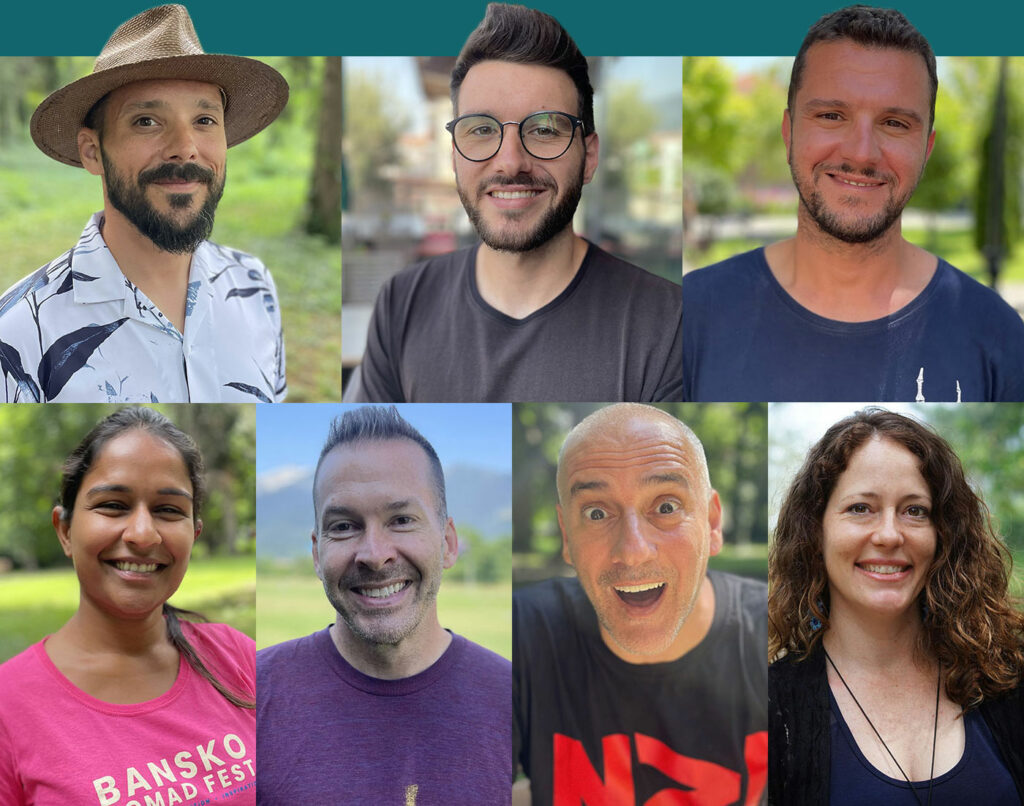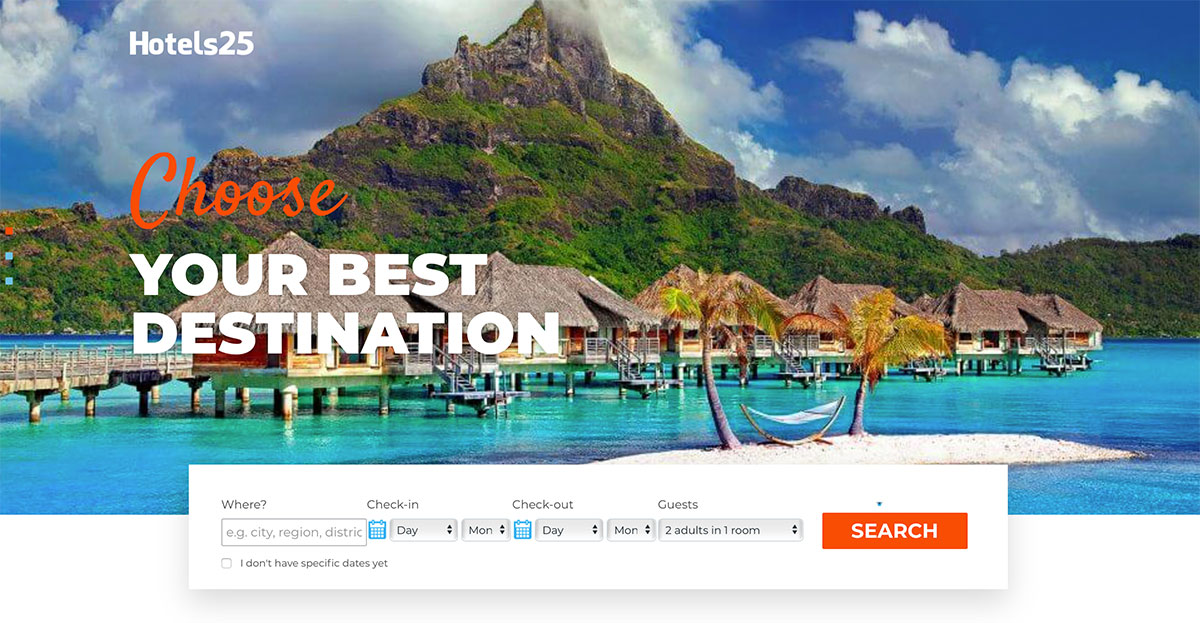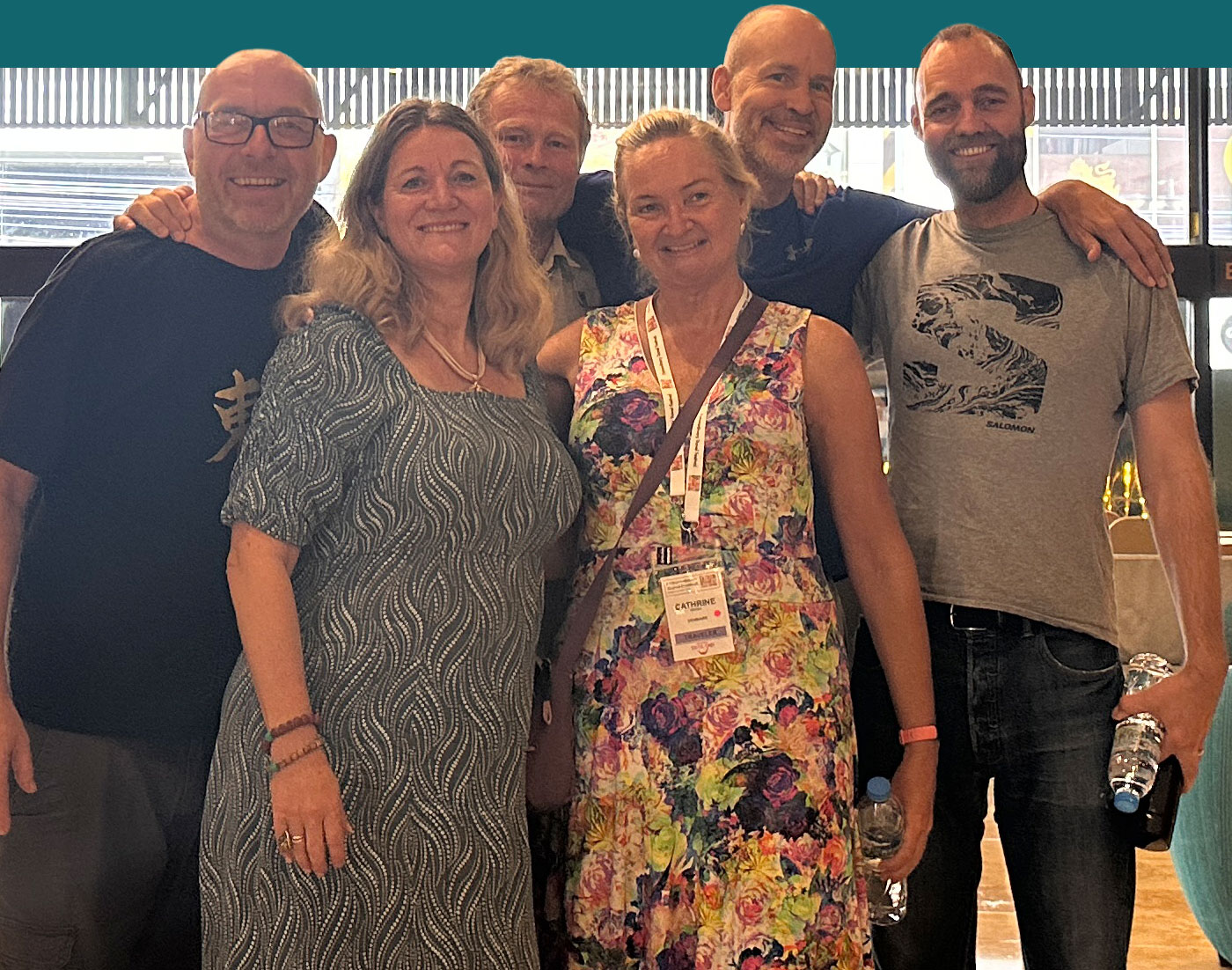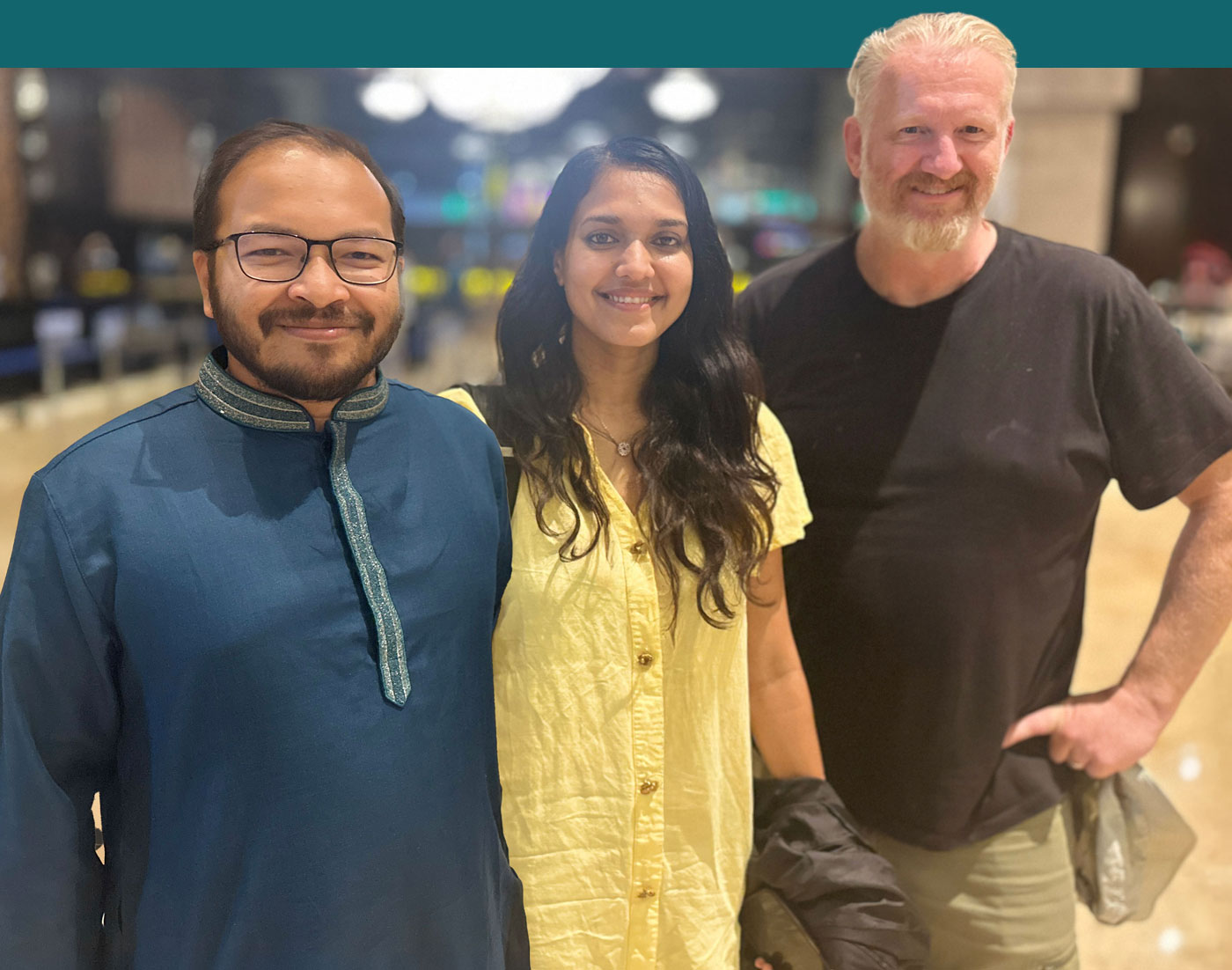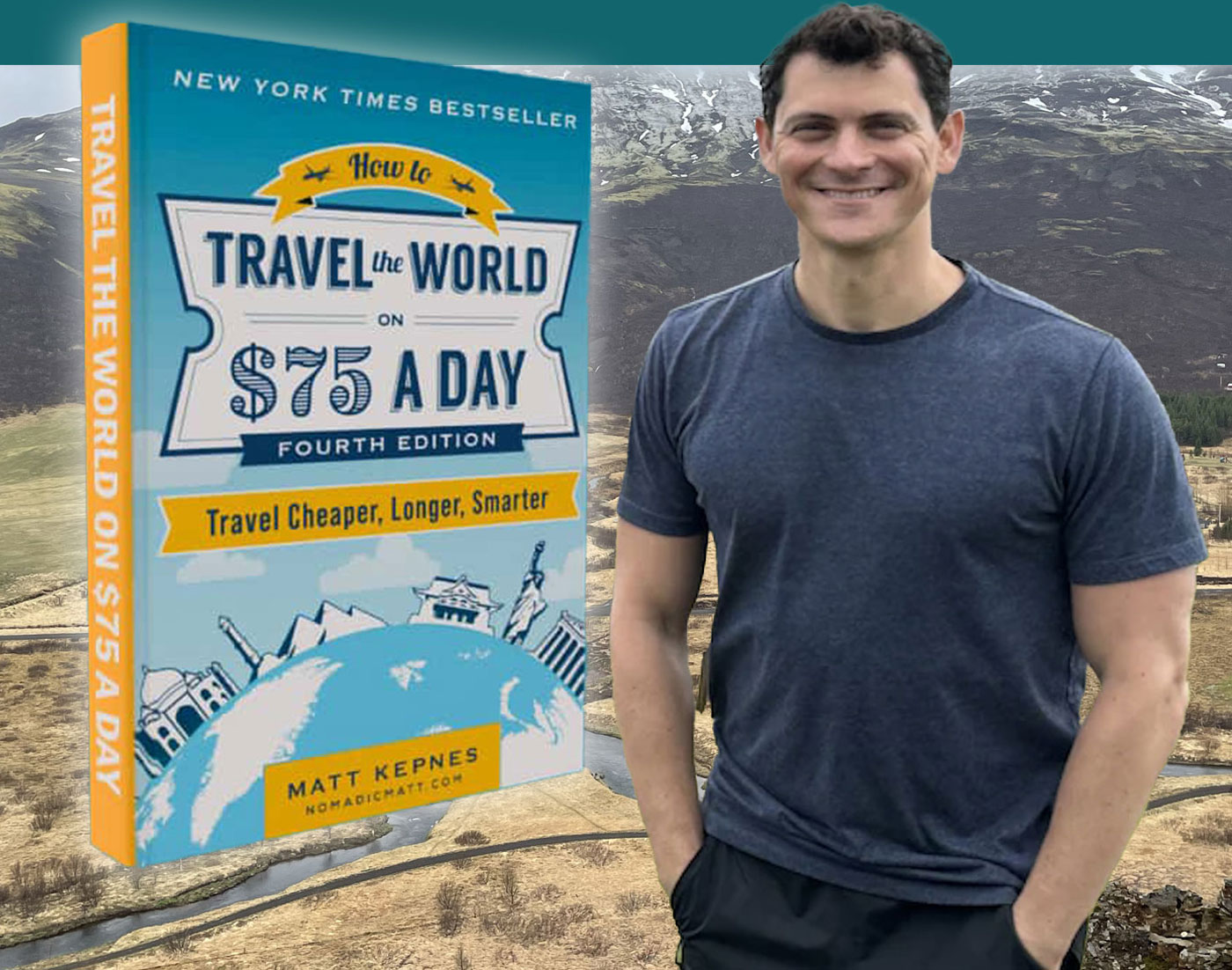Do you want to achieve a greater sense of harmony between your work and leisure as a digital nomad? Are you searching for a way to strike a better work-life balance in your nomadic lifestyle? Our seven digital nomad experts have a ton of ideas and maybe the solution you need. In this episode, they will provide valuable insights and strategies to help you create a more balanced and fulfilling nomadic experience where work and leisure seamlessly coexist.
Does this sound familiar?
You’re a digital nomad, constantly on the move, juggling work and adventure. But despite all your efforts, your work-life balance feels like a never-ending struggle. You’ve been told to simply work less and enjoy more, but that advice isn’t helping. Instead, you’re feeling overwhelmed, stressed, and constantly torn between your professional and personal life. It’s time to break free from this ineffective approach and find a solution that brings harmony to your nomadic lifestyle.
Again, I’m joined by the seven inspiring nomads:
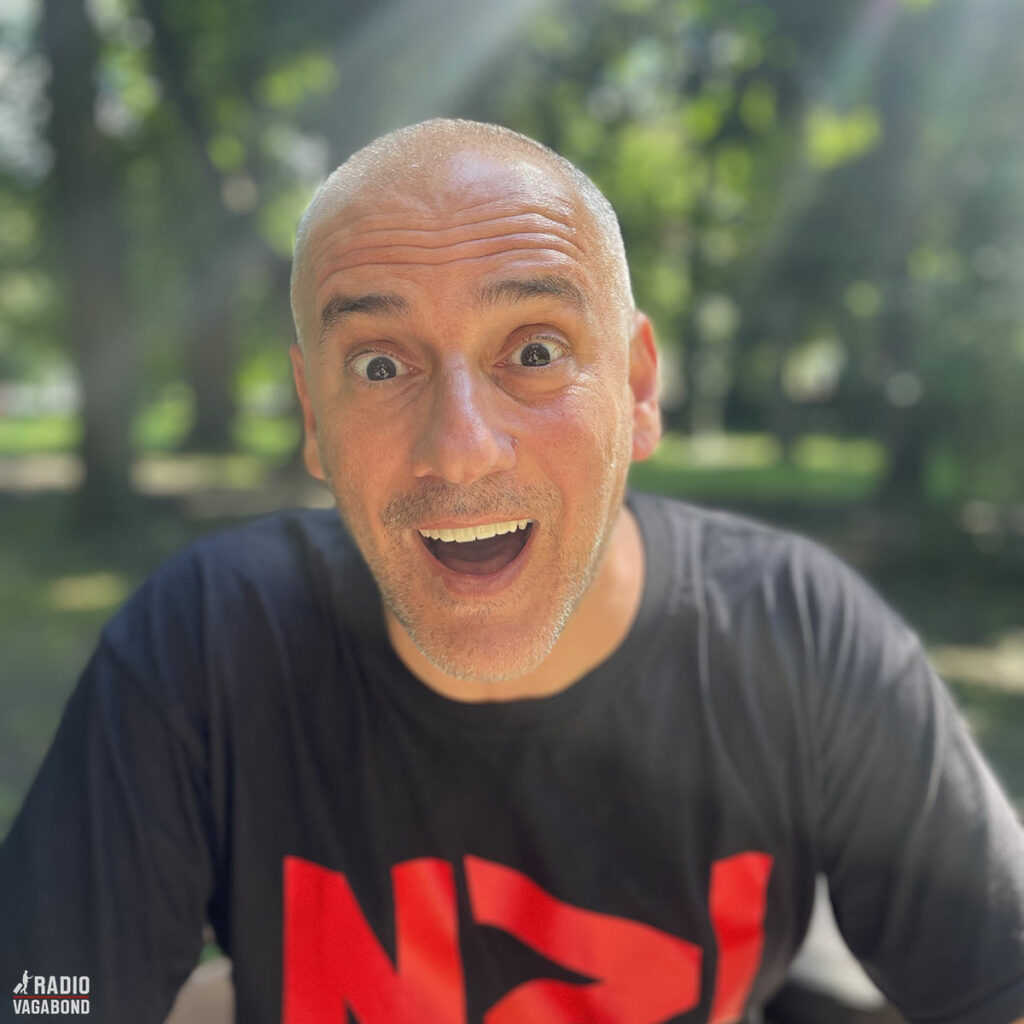
Gianni Bianchini from Italy who’s been a nomad for ten years. He’s a YouTuber, podcaster, and teaches his Italian followers how to become a digital nomad.
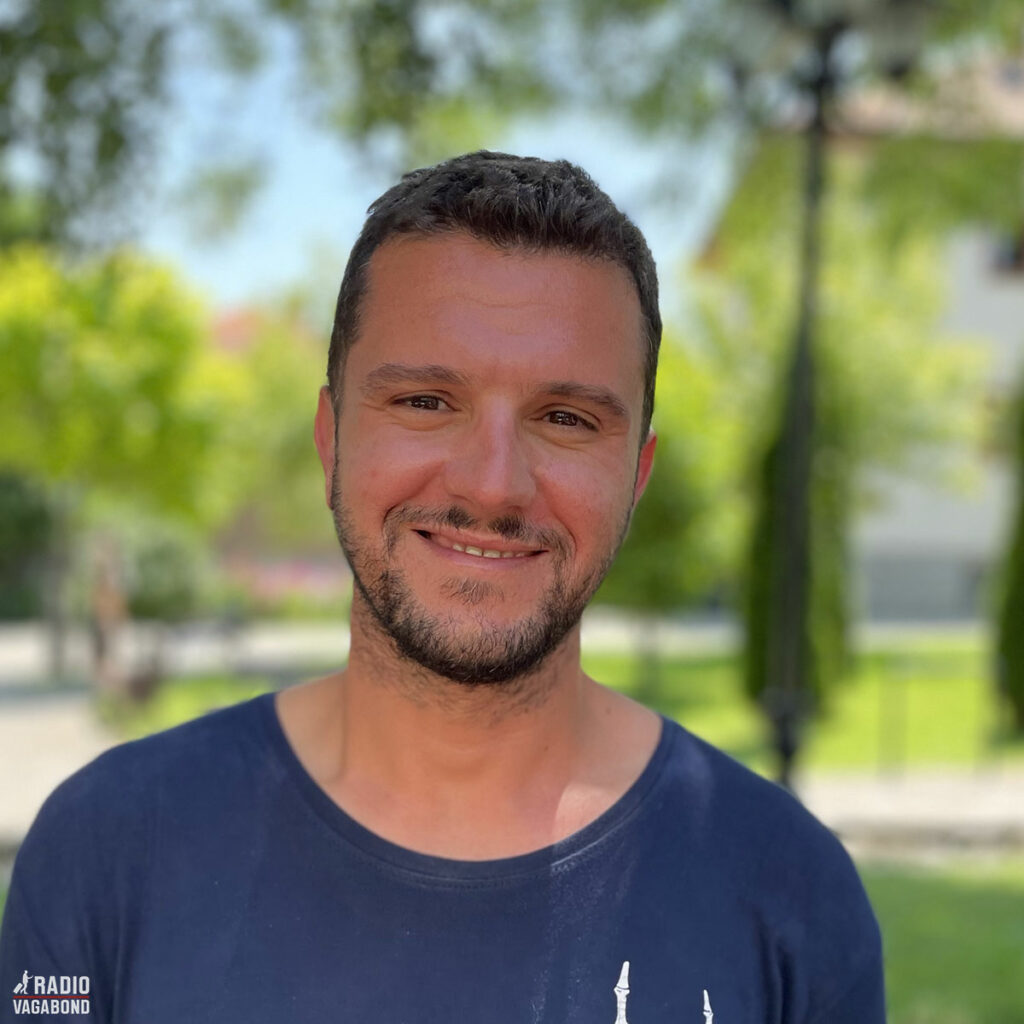
Shaun Busittil from Australia has also been nomading for about ten years. He’s in the middle of writing a PhD about digital nomadism and is a very accomplished travel writer.
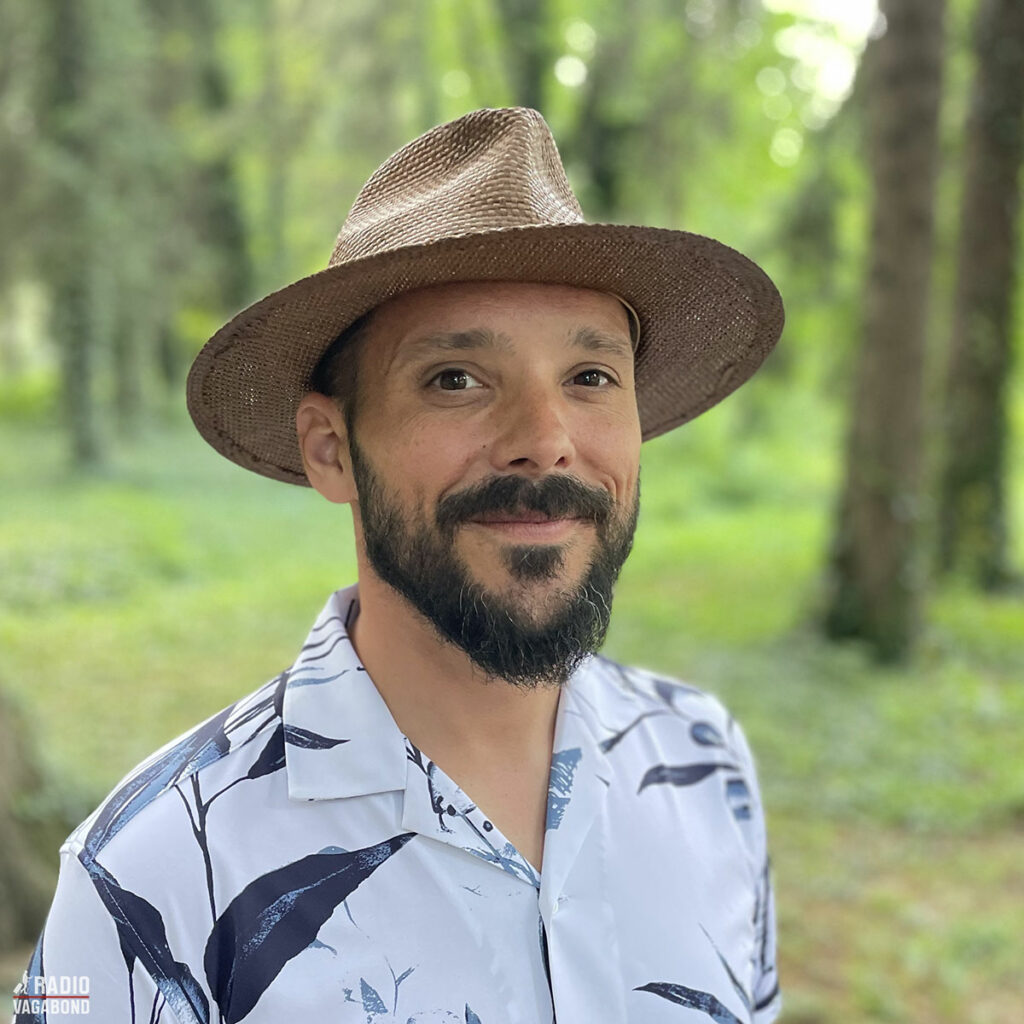
Mr. Derek Smith from Canada has also been nomading for a decade and still travels a lot doing and teaching public speaking. But now he has a home base – or a “hub” as he calls it.
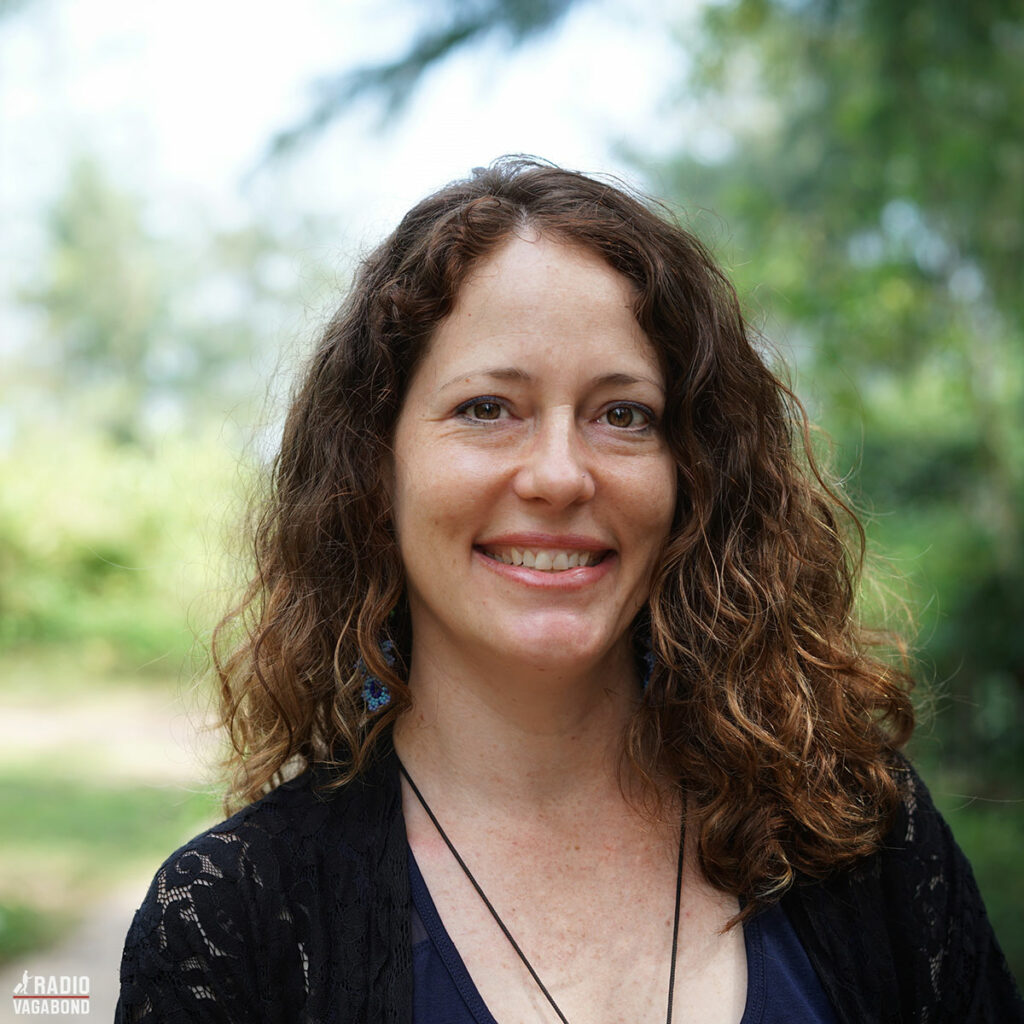
The same goes for Nora Dunn, also from Canada. After 12 years of travelling without a home base, she decided to get one back in Toronto. But still travels most of the year.
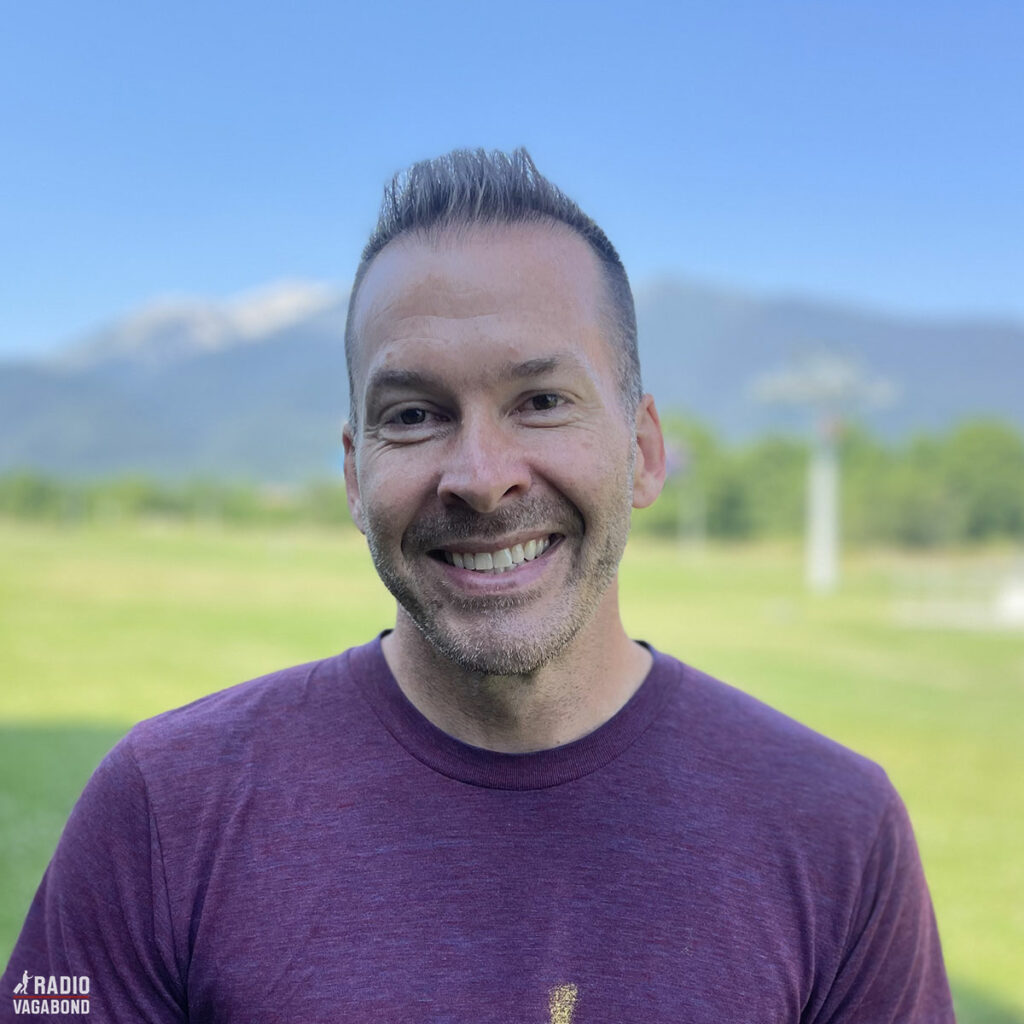
Jason Robinson from Ohio calls his project “The Nomad Experiment.” He’s a newer nomad who had a rocky start in his nomad life. He was ready when the Pandemic broke out and then when it was lifted, he was diagnosed with diabetes.
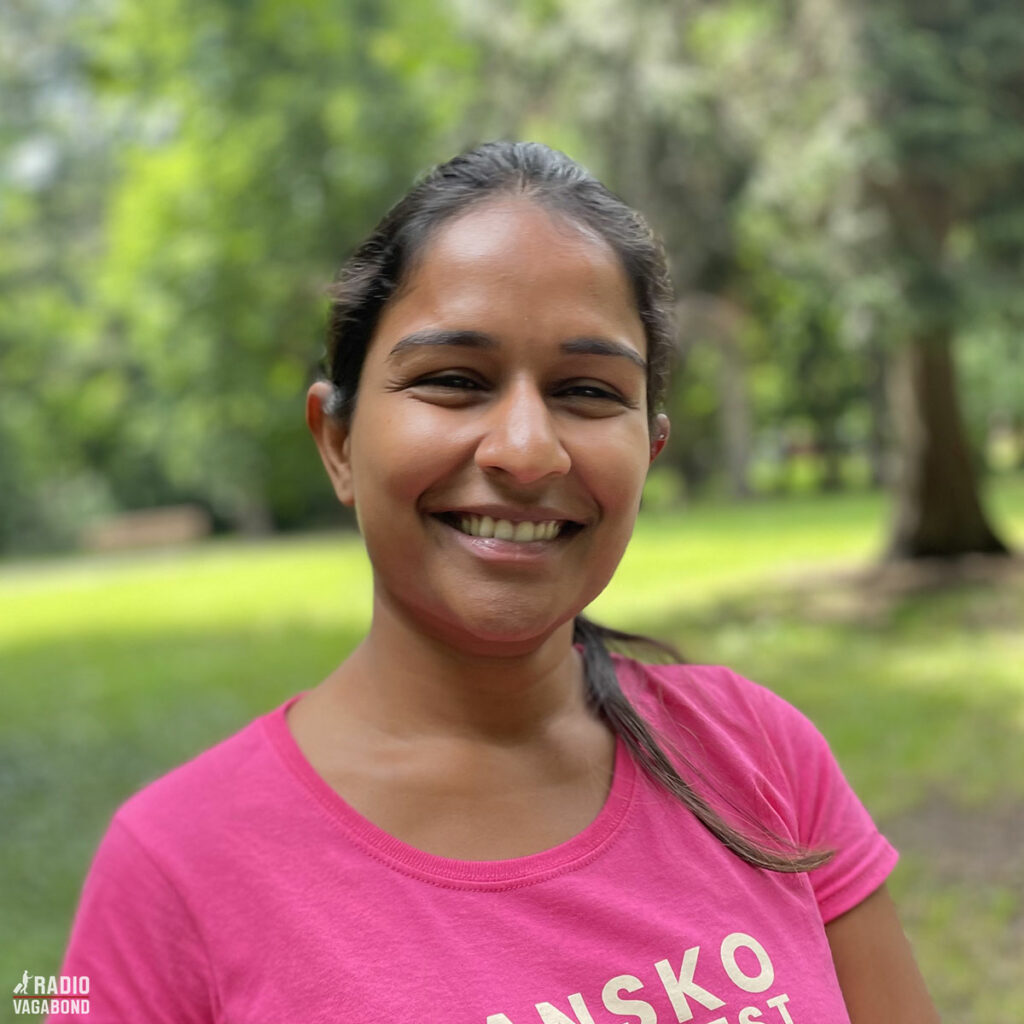
Ranika Koneru from Texas has been a nomad for almost three years and runs a company called Cloud Connections, where she brings people to festivals around the world.

Chris Cerra from England, who’s been nomading around the world for six years with his girlfriend. Chris is helping other nomads find cheap accommodations with his newsletter RemoteBase.co.
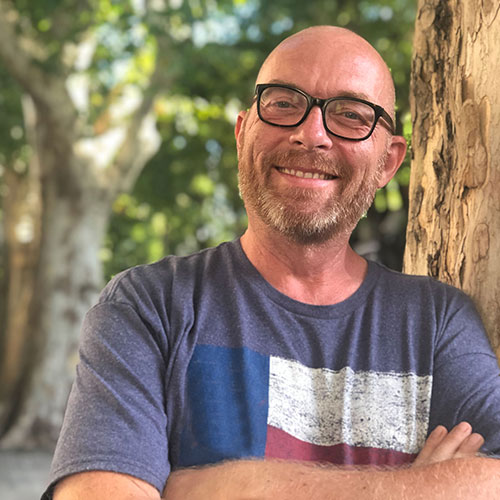
And the 8th nomad is me… I’m like the 5th Beatle. My name is Palle Bo. I’ve been a nomad for seven years at this point.
Work-Life Balance
This episode is all about how to balance your work and free time as a digital nomad. Because embracing the digital nomadic lifestyle and breaking free of the typical 9-5 life calls for adaptability and flexibility. Having a fine balance between work and leisure is important. It’s more than just meeting deadlines or ticking off your travel bucket list; it’s about crafting a lifestyle where you can be productive and still enjoy your journey and the adventures the destination has to offer. You’re not on vacation.
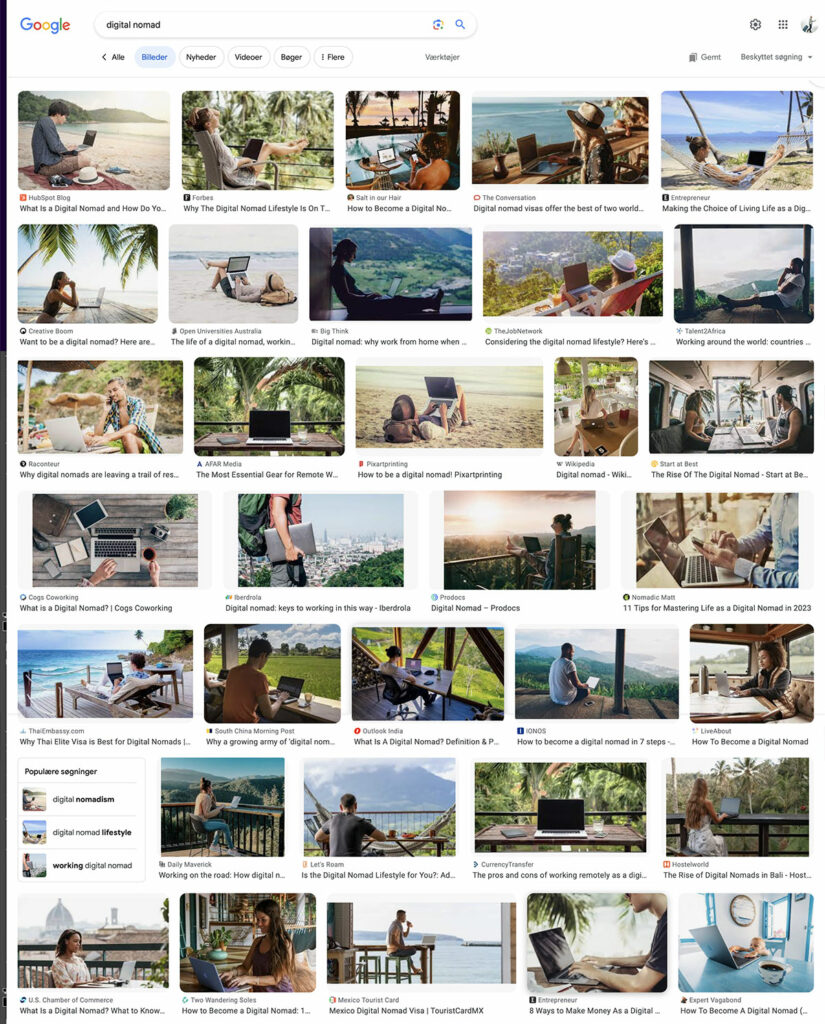
This conversation is great for digital nomads as it offers practical insights on achieving a harmonious work/life balance, for your overall well-being as a nomad.
Freedom and Flexibility
The digital nomadic lifestyle is very much about the promise of freedom and flexibility, but it also comes with its own intricacies. Striking a healthy work-life balance is a constant juggling act that every digital nomad must master.
And it is not just about maintaining productivity; it’s also about nurturing your social life, fostering meaningful connections, and enjoying the journey along the way.
This episode is offering you a road map to better manage professional commitments and personal aspirations, ultimately enriching your nomadic journey.
The 4-Hour Workweek
“The 4-Hour Workweek” by Tim Ferriss is a book that encourages readers to break free from the traditional 9-to-5 work routine and embrace a more flexible and fulfilling lifestyle. The book’s core message is around the concept of “lifestyle design,” where we create a life that is more focused on freedom, time, and experiences over the normal life of working tirelessly until we retire.
In the book, Ferriss talks about remote work and creating online businesses that allow for location independence, and gives strategies for achieving this life through outsourcing, automation, and focusing on tasks that gives the most significant results. Also, it’s about spending less money, so you don’t have to make as much. This can be done by living in places where cost of living is lower than it might be if you’re living in a big house or an expensive apartment in the western world.
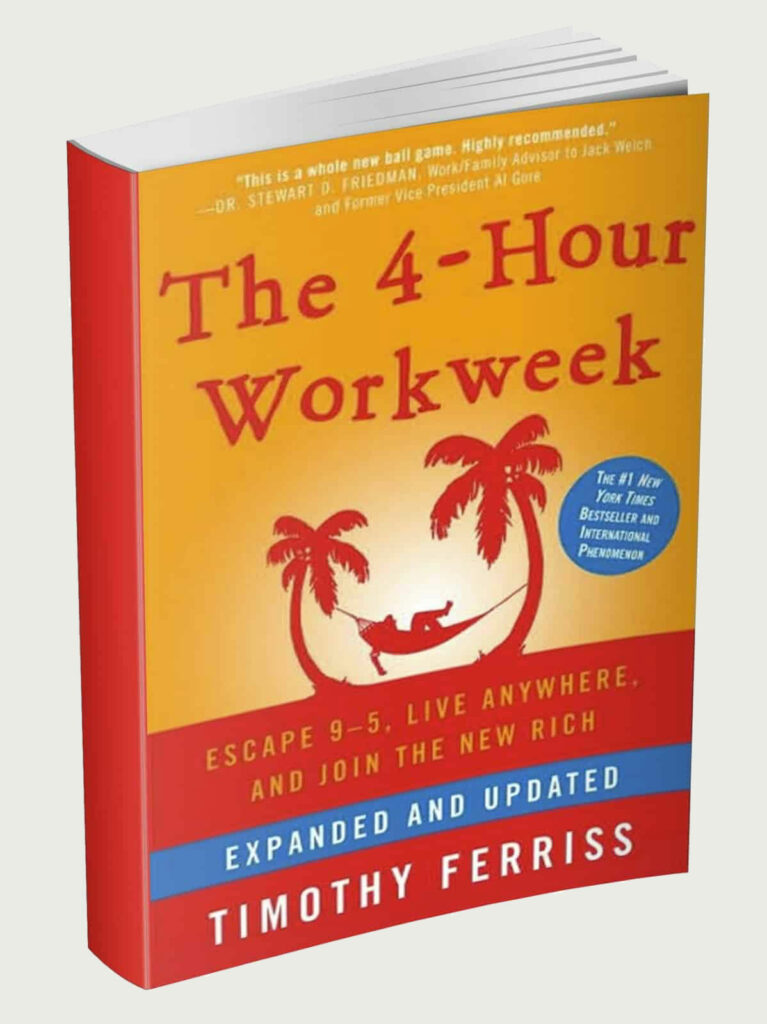
So, for digital nomads, the book has become a bit of a bible – because it aligns with the idea of living and working on one’s own terms while exploring the world. It gives practical advice on optimizing productivity and achieving a work-life balance that makes it possible to travel and explore the world.
“The 4-Hour Workweek” has resonated with those seeking a more liberated and adventurous lifestyle, making it a cornerstone for many aspiring and experienced digital nomads.
But Gianni has noticed that some nomads (including himself in the beginning) work even more hours than they did before they became nomads.
Embracing Flexibility:
The Nomadic Lifestyle
The modern world often demands a delicate balancing act between work responsibilities and personal aspirations. The rising trend of digital nomadism seeks to blur these rigid boundaries, infusing flexibility into the static work-life equation. The sense of freedom that comes from being location-independent can be both intoxicating and overwhelming.
The ebb and flow of life dictate the trajectory of a digital nomad’s journey, helping to merge work and play into a cohesive, yet dynamic, balance. It’s like treading an ever-adapting rhythm that carpets the vast expanse of life’s maze, where one’s schedule must mold with the contours of different time zones, cultures, and work demands.
Listening to Ranika, Shaun, Nora, Chris, Gianni, Jason, and Derek talking about their experiences, it’s clear that maintaining a harmony between work and life doesn’t come without its trials for digital nomads. Just like anyone else, they are not immune to the classic struggle.
Working mode and travel mode
For instance, Gianni Bianchini strategically divides his time between work and exploration, injecting discipline into the heart of flexibility. Nora Dunn, on the other hand, dubs achieving a work-life balance as a continual moving target, highlighting the intrinsic need to stay agile and adaptable.
In the nomadic lifestyle, the traditional confines of a ‘9 to 5’ blur into the horizon, and weekends assume a more fluid role, as suggested by Chris Cerra’s approach. Finding balance involves looking within, staying focused, and making thoughtful changes that fit your unique situation.
Understanding why this matters takes us deep into the heart of digital nomadism. It’s a reflection for those who want to break away from typical work routines and lifestyles. Balancing work and life reflects a sustainable way of living, no matter the chosen lifestyle.
The connection between work and leisure is important, even in the unconventional world of digital nomadism. Striving for this balance, though hard, is crucial for your well-being. It creates a base for productive work, meaningful relaxation, and fulfilling experiences. This builds a cycle of satisfaction and growth. Whether you’re a digital nomad or want to be one, these insights into finding a unique work-life balance offer valuable lessons to navigate life’s challenges with grace.
Strategies for Achieving Work-Life Balance
Living and working as a digital nomad sounds great with its mix of flexibility and freedom. But, staying connected to work while being everywhere can be really hard. Finding a good balance between work and life is tough but really important in this job.
This lifestyle can blur the line between work and personal time because of different time zones. It’s always changing, so you have to change and adapt to make it work in the long run.
Nomads like Gianni Bianchini, Shaun Busuttil, and Nora Dunn share their stories about finding balance. Shaun likes freelancing because he can choose when to work. Nora says balance is always changing and it’s not easy. Gianni talks about being in work-mode or travel-mode in months at a time. Their stories show that there’s no one-size-fits-all solution to balance. It’s different for everyone.
Balance doesn’t just affect how we feel, but it also affects how well we do our job. Being too busy can be a problem for digital nomads too, not just people with regular jobs. Remember, having the freedom to work from anywhere doesn’t matter if you’re working too much and not enjoying life.
Thinking about this and making changes can help keep the fun in being a digital nomad. You need to keep checking and changing how you balance things. What works in one place might not work in another. That’s part of the nomad life – always moving and changing.
The Importance of Social Interaction in Remote Working
Imagine finding the right balance between work and personal time, but with an extra twist: you’re always traveling. Being a digital nomad means mixing work and life while exploring new places and facing new challenges. In today’s world of remote work and travelers, being social is a big part of keeping up this lifestyle.
Connecting with others and making lasting friendships is important in the digital world. It boosts creativity and makes you feel like you belong. So, it’s not just a suggestion but something really important. Let’s learn from seven digital nomads to see how they do it.
Take Ranika Koneru, for example. She brings nomads together at different festivals all over the world. This is a great way to work and be social. Nora Dunn, who’s been a digital nomad for 12 years, agrees. She sets limits and leans on her community for support.
Shaun Busuttil freelances and still has time to be social, which helps him manage work. Adding social experiences to work while traveling has lots of benefits. It helps with tough situations that can come with a nomadic lifestyle.
Think about it: remote work lets you meet people from all over the world. You can learn about different cultures, languages, and ways of life. Plus, it stops you from feeling alone while working far away. Networking makes you feel like part of a team, and that makes work better and more creative.
Adding social stuff to work and life isn’t just about balance. It’s about growing and learning all the time. In today’s busy digital world, it’s a must-do for success.
Navigating the Complexities of Work and Travel
Spending too much time on work or fun can make things uneven. It can affect how well you work or how much you enjoy your travels. Digital nomads need to find a balance that lets them work well and still enjoy their exciting lifestyle. Talking with the seven nomads, it’s clear that everyone does this balance differently.
For example, Chris Cerra works when he feels most energetic. Shaun Busuttil changes his work time to fit different time zones and clients’ needs.
Every digital nomad creates a routine that works best for them. This routine fits their energy and job. This is why flexibility is important for managing this lifestyle. Digital nomads need to know that balancing work and travel isn’t easy, and it’s always changing.
Adapting New Income Streams in Digital Nomadism
Talking to seven digital nomads, I learned many of them had to find new ways to make money to keep their lifestyle going. And the pandemic changed things for everyone, even digital nomads. Usually, being a digital nomad means you can travel and work from anywhere. But because of recent events, this changed a bit. Traveling stopped for a while, and it affected how online businesses worked. This meant finding new ways to make money.
Take Nora Dunn, for example. She’s known as The Professional Hobo and because the income from her blog dropped, she had to find new ways to make money. She started making videos about travel tips, remote work tools, and reviews instead. This kept her audience interested and helped her business.
She didn’t just react to the situation; she changed her business on purpose. Being able to find new ways to make money is important for digital nomads and all sorts of entrepreneurs. It shows how strong and flexible they are, which helps them succeed online.
Digital nomads who’ve been through this show that finding new ways to make money isn’t just about dealing with a crisis. It’s about how the digital nomad way of life is always changing. Just like any job, being a digital nomad means being flexible and smart about making money.
The stories of these nomads teach us that we need to be able to change, watch for what’s happening now, and use it to make money. These are important lessons for all kinds of people who want to succeed online.
Travel writer Shaun is working on a PhD about digital nomadism, and he explains that he has various sources of income, including a scholarship, travel writing fees, and passive income from e-commerce stores.
Managing Time Zones and Flexibility
We also talk about the challenges and benefits of working in different time zones. Chris shares his experiences of adapting their work schedules to accommodate clients from around the world. We also mention the flexibility that comes with being a digital nomad and not feeling the need to take traditional vacations.
Embracing the nomadic lifestyle is a uniquely fulfilling experience, offering the opportunity to explore the world while maintaining a career. However, the importance of social interactions and community while working remotely was another point emphasized in our discussions.
Co-working Spaces and Productivity
As digital nomads, we might find ourselves isolated at times. That’s why co-working spaces and co-living arrangements can be a good idea for you. It’s not only a productive work environment that might inspire you to get work done, but also a great social community, striking a balance between the need for solitude and social engagement.
Remember, being a nomad doesn’t mean you’re alone. There are ways for you to stay connected, find your tribe, and embrace the joys of the global nomadic community. Something we will dive more into in one of the future episodes.
Next Week
In the next episode with the seven nomads, we will be talking about their favorite tools and resources.
LINKS
- Visit Jason Robinson’s travel blog TheNomadExperiment.com and follow him on Instagram as @TheNomadExperiment.
- Follow Nora Dunn’s YouTube channel, with tips on travel and travel gear, her blog, TheProfessionalHoboand on Instagram as @TheProfessionalHobo.
- Follow travel writer on his blog “ShaunBusuttil.com“ and on Instagram as @TheShaunBusuttil.
- Chris Cerra’s email newsletter, RemoteBase.co, for the best accommodation deals for digital nomads. Use promo code VAGA20 to get 20% off on his Premium Newsletter forever. He’s @nomadaccommodationguy on Instagram
- Check out Mr. Derek Smith’s website on public speaking. He’s @Mr_Derek_Smith on Instagram.
- Check out Ranika Koneru’s company, Cloud Connections, for inspiring group travel experiences to the world’s greatest festivals. She’s on Instagram as @RainbowRani_
- Explore Gianni Bianchini’s travel blog, Nomad Is Beautiful, YouTube channel, and podcast for digital nomad advice and insights. On Instagram as @Gianni.Bianchini.
- Connect with Palle Bo on YouTube, LinkedIn, Facebook, and twitter. See all the links here.
I WOULD LIKE TO HEAR FROM YOU!
Please tell me where are you and what are you doing as you listen to this episode? You can either send me an email on listener@theradiovagabond.com, go to TheRadioVagabond.com/Contact or send me a voice message by clicking on the banner.
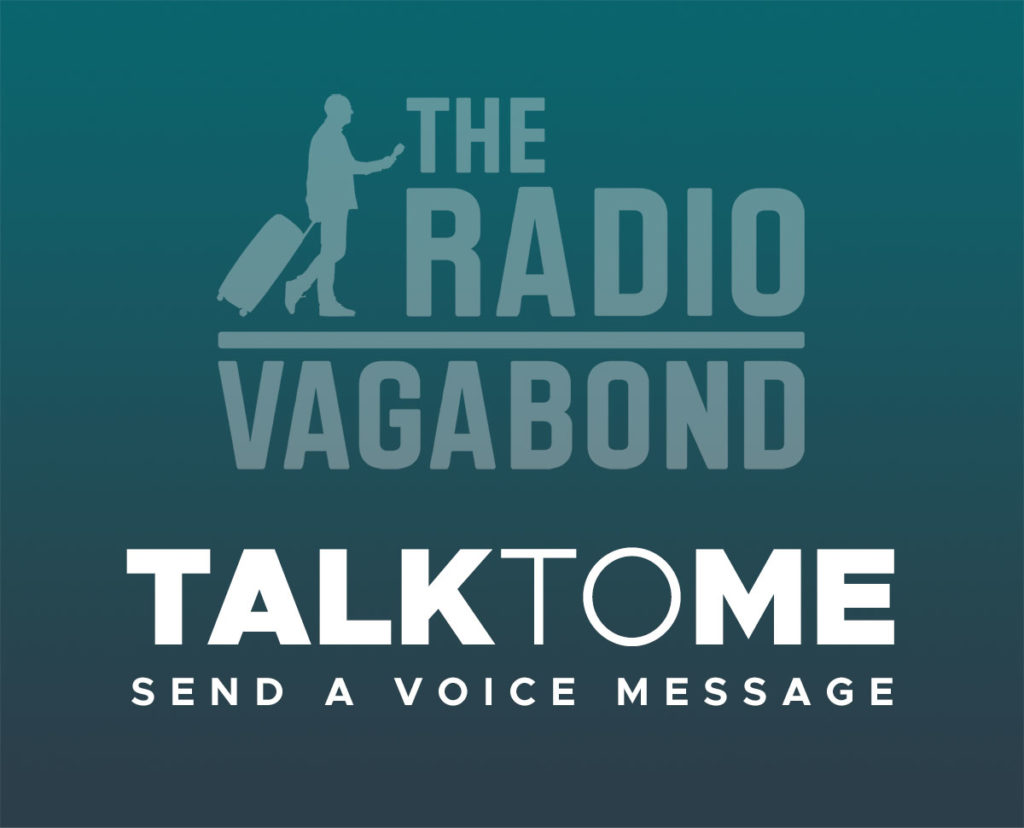
Either way, I would love to hear from you. It’s so nice to know who’s on the other end of this.
SPONSOR
A special thank you to my sponsor, Hotels25.com, who always provide me with the best, most affordable accommodation wherever I am in the world.
Hotels25 scans for prices on the biggest and best travel sites (like Booking.com, Hotels.com, Agoda and Expedia) in seconds. It finds deals from across the web and put them in one place. Then you just compare your options for the same hotel, apartment, hostel or home and choose where you book.
When you book with Hotels25, you get access to 5,000,000 hotel deals. And it’s “best price guaranteed.”
PRODUCED BY RADIOGURU
The Radio Vagabond is produced by RadioGuru. Reach out if you need help with your podcast.
